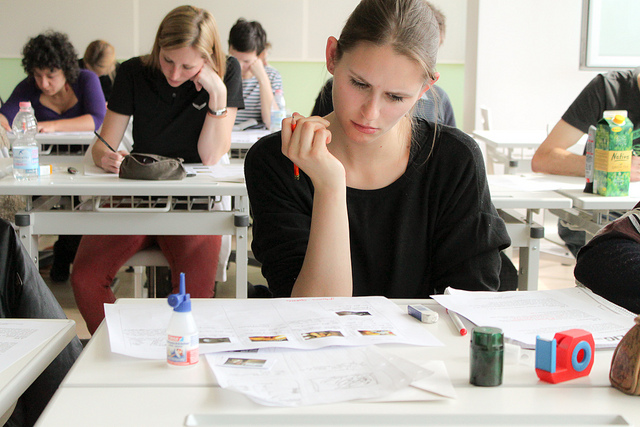This was written by Ana Ver, the Learning Specialist for Science at my school. She tweets at @anainvancouver if you want to connect with her.
Winter break is coming! But three weeks away from school during the holidays doesn’t mean that education has to stop. Being an explorer, a scientist, an artist is not just a job– it is a behavior, a way of life, and is automatic when a master learner is in his or her element. Learning should be ingrained, even when there are no rubrics or marks or IB exams. When the motivation for exploring and learning comes from inside, you know that the real education has begun. How can you help your child become an explorer of the world? Here are some engaging activities to help kids be better observers, listeners, thinkers, scientists, artists, and explorers. Many more ideas can be found in Keri Smith’s book, “How to Be an Explorer of the World”.
What’s Their Story?
Sit in a public place and watch the world pass by. Make up stories about where people may be headed, what they’re doing, who they’ll be meeting. Could they be a world traveler or a time traveler? These observations and inferences, not to mention storytelling skills, will help kids become excited explorers!
The Hunt for the Perfect Poking Stick
Walk through a park or the woods or the beach, but keep your eyes trained on the ground. You’re looking for the perfect poking stick! It needs to be long, not too heavy, sturdy, and with a dull end so it won’t hurt anyone or anything. Use your poking stick to explore your surroundings—to turn over rocks and leaves, to poke at that dead jellyfish. Where will your poking stick lead you?
Iron Scientist
You’ve heard of Iron Chef—contestants are given a secret ingredient (fish eyeballs, Meyer lemons, birthday cake) that they have to incorporate into a dish. Why not rejig the formula as an engineering activity? Clear out the junk drawer, decide on a random secret ingredient, and challenge your neighbors. Build a bridge, a better home alarm, or a home for your pet rock. See what kind of creations emerge.
Play With Your Food!
Go to a grocer where you’ve never tasted most of the fruit or vegetables for sale. Document the sights and smells and sounds. Pick an interesting looking food. Ask the grocer his or her favourite way to prepare it. Buy it, bring it home, and have a taste test!
Found Faces
Take a walk around your neighbourhood with your dog and your camera. Look for objects, garbage, trees, clouds that look like faces! Take pictures of the faces and give them names. Alternatively, look for objects or designs that look like letters or numbers. Spell your name. Write out your favourite chemical equation.
Small Explorations
On rainy days: Find a puddle. Jump in it. Save the earthworms and slugs from the sidewalk.
Go for a bike ride. Bike as fast as you can up a hill. Turn around and coast back down the hill. Journal some metaphors for the feeling of the wind rushing by your face.
Find something precious to you. Bury it. Make a treasure map for your best friend to find it.
Turn all the photos in your house upside down. Hide around the corner and observe if anyone notices.
Create a stack of cards with mini-thought experiments on them, like, “If we went to Mars, what would we need?” or “What would happen to restaurants if you could miniaturize food?”. Keep them on the dining table. Discuss over dinner.
When adults model exploration and joy of discovery for their children, we help students become knowledgeable, inquiring, and open-minded reflectors, communicators, and risk-takers. We help continue the IB education outside of school. We help them become explorers of the world.
